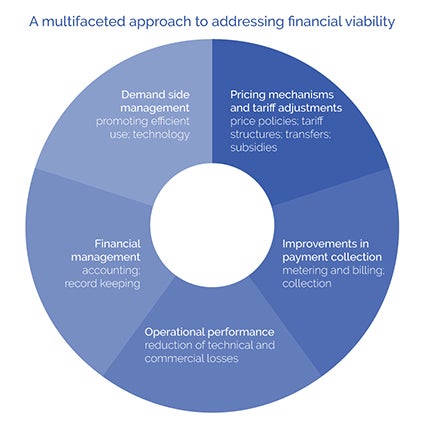
Public Service: Enhancing Efficiency Through System Reform

The concept of public service efficiency has become increasingly vital in contemporary governance, as societies demand more from their public institutions. Enhancing the functionality and responsiveness of these institutions is essential for fostering trust and accountability among citizens. One of the principal avenues for achieving this enhancement is through systematic reform. This article delves into the intricate mechanisms of improving public service efficiency through various reform strategies, focusing specifically on the role of the commission system in governance.
With global challenges such as economic crises, climate change, and public health emergencies, the demand for improved public service has never been more pressing. Thus, understanding how to implement effective reform strategies is paramount for policymakers and stakeholders. By exploring the dynamics of system reform, particularly how it pertains to commissions, this article aims to provide a comprehensive overview of enhancing efficiency in public service.
- Understanding Public Service Efficiency
- The Role of System Reform in Public Service
- Types of Commissions in Governance
- Comparisons: Commissions in the UK vs. the US
- The Shift from Elected Commissions to Council-Manager Systems
- Case Studies: Successful Reforms in Public Service
- Challenges in Implementing System Reforms
- Strategies for Enhancing Efficiency in Public Services
- The Future of Public Service and System Reform
- Conclusion: The Path Forward for Public Institutions
Understanding Public Service Efficiency
Public service efficiency refers to how effectively public institutions deliver services to their constituents. It encompasses various factors, including resource allocation, service delivery speed, and overall satisfaction of the public. An efficient commission system can significantly impact the quality of public services by streamlining processes and improving communication between government bodies and the community.
The Importance of Measuring Public Service Efficiency
The measurement of public service efficiency is essential for identifying areas of improvement. Various performance metrics are employed, ranging from quantitative data, such as response times and service completion rates, to qualitative assessments involving public satisfaction surveys. These measurements allow governments to pinpoint weaknesses in the current commission system and restructure accordingly to enhance service delivery.
The Role of System Reform in Public Service
System reform is crucial for shaping the way public service operates. It often involves redefining the roles and responsibilities of various governance bodies, including commissions. In this context, reforms can lead to significant advancements in how public service functions, particularly through the reform of existing commission systems.
Identifying Necessary Reforms
Governments must identify specific areas that require reform within their commission systems. This could include revising operational frameworks, establishing clearer lines of accountability, or enhancing staff training and development. Recognizing these areas for improvement sets the groundwork for implementing effective reforms.
Types of Commissions in Governance
Commissions serve various functions in governance, often categorized based on their objectives and operational structures. Understanding these different types is essential for reforming their systems effectively.
- Royal Commissions: Established in the UK for specific inquiries, these bodies operate independently from ministers to address significant public issues.
- Statutory Commissions: Formed by legislation, these commissions have defined powers and responsibilities to oversee particular sectors.
- Departmental Commissions: Tied directly to government departments, these bodies help implement and regulate policies.
- Legislative Committees: Predominantly in the US, these groups investigate, deliberate, and propose legislation, serving as a key function of government inquiry.
Comparisons: Commissions in the UK vs. the US
When considering the efficiency of the commission system, a comparative look at the UK and US reveals notable differences. In the UK, commissions often operate independently from government bodies, enhancing their investigatory capacity. In contrast, the US relies heavily on legislative committees, which, while effective, can become politicized and hinder objective investigations.
Implications of Governance Structure on Efficiency
The structure of governance significantly impacts the efficiency of public service delivery. In the UK, the independent nature of commissions leads to more transparency and trust among citizens. Conversely, the reliance on legislative committees in the US can result in slower processes and less public confidence.
The Shift from Elected Commissions to Council-Manager Systems
Over the years, many municipalities in the US have transitioned from elected commissions to council-manager systems. This shift aims to improve administrative efficiency by separating political and managerial responsibilities. Under a council-manager system, elected councils set policy, while a professional manager oversees daily operations, potentially leading to more efficient governance.
Advantages of Council-Manager Systems
The council-manager system offers several advantages, including:
- Increased accountability in management.
- Professional expertise in public administration.
- Streamlined decision-making processes.
Case Studies: Successful Reforms in Public Service
Examining successful case studies of reforming commission systems provides valuable insights into effective strategies. Various regions have seen significant improvements through innovative approaches and revisions of existing policies.
Example: New York City’s Department of Environmental Protection
New York City implemented a commission system overhaul within its Department of Environmental Protection. By introducing a new framework focused on inter-agency collaboration and public engagement, the department significantly improved its service delivery and responsiveness to community needs.
Challenges in Implementing System Reforms
Despite the potential benefits of reforming the commission system, several challenges often arise. Resistance from entrenched interests, lack of resources, and political opposition can impede progress. Identifying these challenges is critical in devising strategies to overcome them.
Overcoming Obstacles to Reform
To successfully navigate challenges in implementing reforms, public institutions must engage stakeholders early in the process, communicate the benefits of proposed changes, and provide necessary training and resources to staff.
Strategies for Enhancing Efficiency in Public Services
Enhancing efficiency within public services requires targeted strategies and policies. This section outlines key strategies that have proven effective in various jurisdictions.
Adopting Technology Solutions
Leveraging technology is a pivotal strategy for enhancing public service efficiency. By implementing digital tools and platforms, governments can improve communication, streamline processes, and enhance data management in the commission system.
Fostering Collaboration Across Agencies
Creating opportunities for inter-agency collaboration encourages sharing best practices and resources, leading to better service outcomes. This cooperative approach fosters a more cohesive public service environment.
The Future of Public Service and System Reform
Looking ahead, the future of public service relies heavily on continuous reform efforts aimed at enhancing efficiency. The evolving challenges faced by societies require adaptive governance structures and innovative approaches within the commission system.
Adapting to Change
As societal needs shift, public institutions must remain flexible, ready to embrace changes that improve service delivery. Continuous evaluation and adjustment of the commission system will be crucial for meeting the public's evolving expectations.
Conclusion: The Path Forward for Public Institutions
Enhancing public service efficiency through systematic reform remains a critical objective for governments worldwide. By understanding the dynamics of the commission system, learning from successful case studies, and implementing effective strategies, public institutions can create a more agile and responsive governance framework. The path forward necessitates a commitment to ongoing reform, a willingness to adapt, and an unwavering focus on the public good.
Did you find this article helpful? Public Service: Enhancing Efficiency Through System Reform See more here Education.
Leave a Reply






Related posts